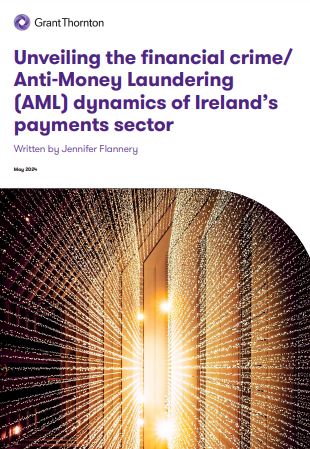
In the dynamic landscape of financial technology, Ireland stands out as a host of Payment Services Providers (PSPs) including both Payment Institutions (PIs) and E-Money Instiutions (EMIs), both indigenous and drawn by its buoyant fintech sector.
PIs emerged in 2018 with a record number of authorisations by the Central Bank of Ireland. Following this, there was a surge in EMI authorisations in 2019. This can be attributed to the wide range of strategic advantages offered by Ireland in addition to the robust regulatory framework applicable to PIs and EMIs that are overseen by the Central Bank of Ireland.
Ireland has been an important beneficiary of the UK’s withdrawal from the European Union (EU) as companies are looking to shift operations and use Ireland as a launchpad to passport elsewhere in the EU, through either branch operations or cross-border services. The country’s appealing tax policies, and a comprehensive network of double tax agreements, enhance its attractiveness as a jurisdiction for PIs and EMIs.
Furthermore, Ireland’s regulatory environment around PIs and EMIs, as highlighted in the recent Central Bank of Ireland’s Regulatory & Supervisory Outlook report (the Report) , is closely aligned with key European guidelines and, in particular of, EBA Guidelines on Outsourcing Arrangements. This alignment underscores Ireland’s commitment to internationally recognised standards and emphasises the role financial crime plays in safeguarding the integrity of the financial systems.
The Report outlines other crucial priorities for ensuring effective safeguards and robust governance structures, as well as enhancing risk management practices and strengthening efforts in Anti-Money Laundering and Countering the Financing of Terrorism (AML/CFT) measures.
As of May 2024, there are 28 EMIs, 25 PIs, six Account Information Service Providers (AISP) and 11 Virtual Asset Service Providers (VASP) authorised by the Central Bank of Ireland marking a significant increase from 14 to 70 firms over the past seven years, although these figures may include multiple authorisations for certain PSPs. Based on figures from the European Central Bank (ECB) payment transactions, the value of sent payments involving non-monetary financial institutions for 2022 was €83,768.4 millions, which is nearly a 300% increase on the figures from 2021.
Additionally, the Central Bank reported that, in Ireland there has been a 10-fold increase in safeguarded funds which was reported to be approximately €8bn in December 2023. As this sector expands, a robust AML/CFT framework becomes even more crucial given money laundering schemes are becoming more complex and the growing prevalence in the financial system of other financial crimes, such as online fraud.


